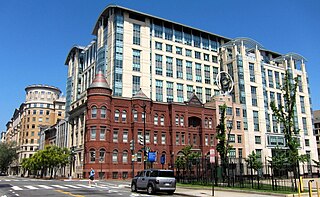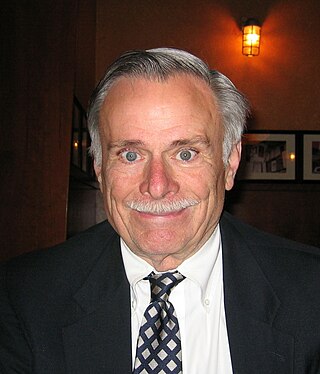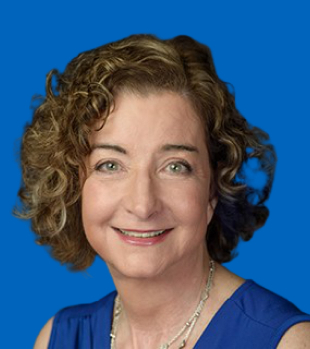
The National Academies of Sciences, Engineering, and Medicine (NASEM), also known as the National Academies, is a congressionally chartered organization that serves as the collective scientific national academy of the United States. The name is used interchangeably in two senses: (1) as an umbrella term or parent organization for its three sub-divisions that operate as quasi-independent honorific learned society member organizations known as the National Academy of Sciences (NAS), the National Academy of Engineering (NAE), and the National Academy of Medicine (NAM); and (2) as the brand for studies and reports issued by the unified operating arm of the three academies originally known as the National Research Council (NRC). The National Academies also serve as public policy advisors, research institutes, think tanks, and public administration consultants on issues of public importance or on request by the government.

The National Academy of Sciences (NAS) is a United States nonprofit, non-governmental organization. NAS is part of the National Academies of Sciences, Engineering, and Medicine, along with the National Academy of Engineering (NAE) and the National Academy of Medicine (NAM).

The Royal Swedish Academy of Engineering Sciences, founded on 24 October 1919 by King Gustaf V, is one of the royal academies in Sweden. The academy is an independent organisation, which promotes contact and exchange between business, research, and government, in Sweden and internationally. It is the world's oldest academy of engineering sciences.(OECD Reviews of Innovation Policy: Sweden 2012).
The National Academy of Medicine (NAM), known as the Institute of Medicine (IoM) until 2015, is an American nonprofit, non-governmental organization. The National Academy of Medicine is a part of the National Academies of Sciences, Engineering, and Medicine, along with the National Academy of Sciences (NAS), National Academy of Engineering (NAE), and the National Research Council (NRC).

Norman Ralph "Norm" Augustine is a U.S. aerospace businessman who served as United States Under Secretary of the Army from 1975 to 1977. Augustine served as chairman and CEO of the Lockheed Martin Corporation. He was chairman of the Review of United States Human Space Flight Plans Committee.

Clayton Daniel Mote Jr. is the President Emeritus of the National Academy of Engineering. He served as the president of the NAE from July 2013 to June 2019. He also served as President of the University of Maryland, College Park from September 1998 until August 2010. From 1967 to 1991, Mote was a professor in mechanical engineering at the University of California, Berkeley, and served as Vice Chancellor at Berkeley from 1991 to 1998. Mote is a judge for the Queen Elizabeth Prize for Engineering.

Lewis McAdory Branscomb was an American physicist, government policy advisor, and corporate research manager. He was best known for being head of the National Bureau of Standards and, later, chief scientist of IBM; and as a prolific writer on science policy issues.
The National Academy of Engineering (NAE) is an American nonprofit, non-governmental organization. The National Academy of Engineering is part of the National Academies of Sciences, Engineering, and Medicine, along with the National Academy of Sciences (NAS), the National Academy of Medicine, and the National Research Council.

John Stewart Waugh was an American chemist and Institute Professor at the Massachusetts Institute of Technology. He is known for developing average hamiltonian theory and using it to extend NMR spectroscopy, previously limited to liquids, to the solid state. He is the author of ANTIOPE, a freeware general purpose Windows-based simulator of the spectra and dynamics of nuclear magnetic resonance (NMR). He has also used systems of a few coupled spins to illustrate the general requirements for equilibrium and ergodicity in isolated systems.
The United States National Academy of Sciences' Board on Science, Technology, and Economic Policy (STEP) is a board of the United States National Academy of Sciences.
Beyond Bias and Barriers: Fulfilling the Potential of Women in Academic Science and Engineering (ISBN 0309100429) is a major report about the status of women in science from the United States National Academy of Sciences. Published in 2006, the report closely examines the data, proposed explanations, and possible responses to the relative dearth of women in science and engineering higher education in the United States.
Satya Atluri was an Indian American engineer, educator, researcher and scientist in aerospace engineering, mechanical engineering and computational sciences, who was a Distinguished Professor Emeritus of Aerospace Engineering at the University of California, Irvine. Since 1966, he made fundamental contributions to the development of finite element methods, boundary element methods, Meshless Local Petrov-Galerkin (MLPG) methods, Fragile Points Methods (FPM), Local Variational Iteration Methods, for general problems of engineering, solid mechanics, fluid dynamics, heat transfer, flexoelectricity, ferromagnetics, gradient and nonlocal theories, nonlinear dynamics, shell theories, micromechanics of materials, structural integrity and damage tolerance, Orbital mechanics, Astrodynamics, digital Twins of Aerospace Systems, etc.

Warren Morton Washington is an American atmospheric scientist, a former chair of the National Science Board, and currently a Distinguished Scholar at the National Center for Atmospheric Research (NCAR) in Boulder, Colorado.
The NAS Award in Aeronautical Engineering, also known as the J.C. Hunsaker Award in Aeronautical Engineering, is awarded by the U.S. National Academy of Sciences for "excellence in the field of aeronautical engineering". Established by Jerome C. Hunsaker and his wife, it was first awarded in 1968.
Jennifer Rexford is an American computer scientist who is currently the Provost, Gordon Y. S. Wu Professor in Engineering, Professor of Computer Science, and formerly the Chair of the Department of Computer Science at Princeton University. Her research focuses on analysis of computer networks, and in particular network routing, performance measurement, and network management.
Gardner Edmund Lindzey was an American psychologist and a past president of the American Psychological Association (APA). After completing a doctorate at Harvard University, Lindzey served as a professor or administrator at several universities, edited a well-known textbook in social psychology and led a 1982 National Academy of Sciences (NAS) panel that recommended the legalization of marijuana.
Zhigang Suo is the Allen E. and Marilyn M. Puckett Professor of Mechanics and Materials in the Harvard School of Engineering and Applied Sciences. His research centers on the mechanical behavior of materials and structures.

Laura H. Greene is the Marie Krafft Professor of Physics at Florida State University and chief scientist at the National High Magnetic Field Laboratory. She was previously a professor of physics at the University of Illinois at Urbana-Champaign. In September 2021, she was appointed to the President's Council of Advisors on Science and Technology (PCAST).

Michael Stewart Witherell is an American particle physicist and laboratory director. He has been the director of the Lawrence Berkeley National Laboratory since 2016. Witherell, a particle physicist, previously served as Director of Fermilab. He previously served as professor and vice chancellor for research at the University of California, Santa Barbara.
Thomas Francis Malone was a noted American geophysicist best known for his contributions to atmospheric science and meteorology. His career ranged from a tenured academic appointment at the Massachusetts Institute of Technology, to a senior vice presidency at the Travelers Insurance Company, to dean of the graduate school at the University of Connecticut, then Director of the Holcomb Research Institute at Butler University, and finally Executive Scientist for the Connecticut Academy of Science and Engineering.









